
Annual Report 2023
© Wildlife Justice Commission
Johan de Wittlaan 7
2517 JR The Hague
The Netherlands
www.wildlifejustice.org
Chamber of Commerce: 62800248
DESIGN · batweb.es


Annual Report 2023
© Wildlife Justice Commission
Johan de Wittlaan 7
2517 JR The Hague
The Netherlands
www.wildlifejustice.org
Chamber of Commerce: 62800248
DESIGN · batweb.es
2023 was an outstanding year for the Wildlife Justice Commission, marked by significant achievements. Our unwavering commitment to disrupt and help dismantle transnational criminal networks involved in wildlife trafficking led to notable successes in countries such as Nigeria, South Africa, Thailand, Vietnam, Indonesia, and Malaysia, where we played a crucial role in facilitating substantial arrests. We considerably extended our global reach and continued sharing our expertise with law enforcement, policy makers, and practitioners worldwide.
Our results this year are a testament to our impactful efforts: we facilitated the arrest of 26 suspects, including high-level individuals and corrupt officials who enabled their operations. These efforts successfully disrupted the activities of at least 10 distinct criminal networks involved in trafficking wildlife products and animals.
Beyond making arrests, we provided critical support to our law enforcement partners in preparing
for the prosecution of those apprehended. In July, in a landmark case, three high-ranking Vietnamese members of an organised crime group involved in trafficking ivory, pangolin scales, rhino horn, and lion bones from Nigeria, Mozambique, and South Africa to Vietnam were convicted of wildlife trafficking. These individuals were arrested by the Nigeria Customs Service (NCS) in 2022, based on information provided by the Wildlife Justice Commission. This success and our collaborative efforts with the NCS in disrupting wildlife trafficking were highlighted in a BBC report.
Another significant achievement was the prosecution and conviction of Teo Boon Ching in the United States. Teo Boon Ching was one of the largest wildlife traffickers globally, specialising in transporting rhino horn, ivory, and pangolin scales from Africa to Southeast Asia. This marks the first time we are publicly acknowledging our role in his arrest. We are particularly proud to have contributed to the investigation that led to his capture and to have supported the U.S. Fish and Wildlife Service (USFWS) in this operation. His imprisonment and subsequent conviction for wildlife trafficking in the United States District Court for the Southern District of New York have significantly disrupted the illegal wildlife trade.

Olivia SwaakGoldman
Executive Director, Wildlife Justice Commission
Addressing the global issue of wildlife crime is most effectively achieved through cooperative efforts with like-minded allies. In 2023, the Wildlife Justice Commission played an active role in various alliances to facilitate strategic coordination among civil society actors in targeting key stakeholders to influence policy and build political will, including United for Wildlife, the Global Initiative to End Wildlife Crime, of which we are a founding Champion, the United Nations
Convention against Corruption (UNCAC) Coalition’s Working Group on Environmental Crime and Corruption, which we co-established and continue to chair, the Alliance of NGOs on Crime Prevention and Criminal Justice, the Financial Accountability & Corporate Transparency Coalition, and the Nature Crime Alliance, as a founding member.
Our work would not be possible without our generous donors and partners. This year, we proudly welcomed the United Kingdom’s Government, through the Illegal Wildlife Trade Challenge Fund, the Swedish Postcode Foundation, the Timeless Foundation, the Turing Foundation, the Robert H.N. Ho Family Foundation Global, and Stichting Nieuwe Waarde to our circle of partners. We are grateful for their continuous support. We would like to extend our sincere gratitude to all of our supporters for their generosity and dedication to our shared mission of stopping the destruction of our biodiversity for profit. Your support played a crucial role in our significant achievements in 2023. With your continued dedication, we aim to strive for an even more impactful 2024 together.
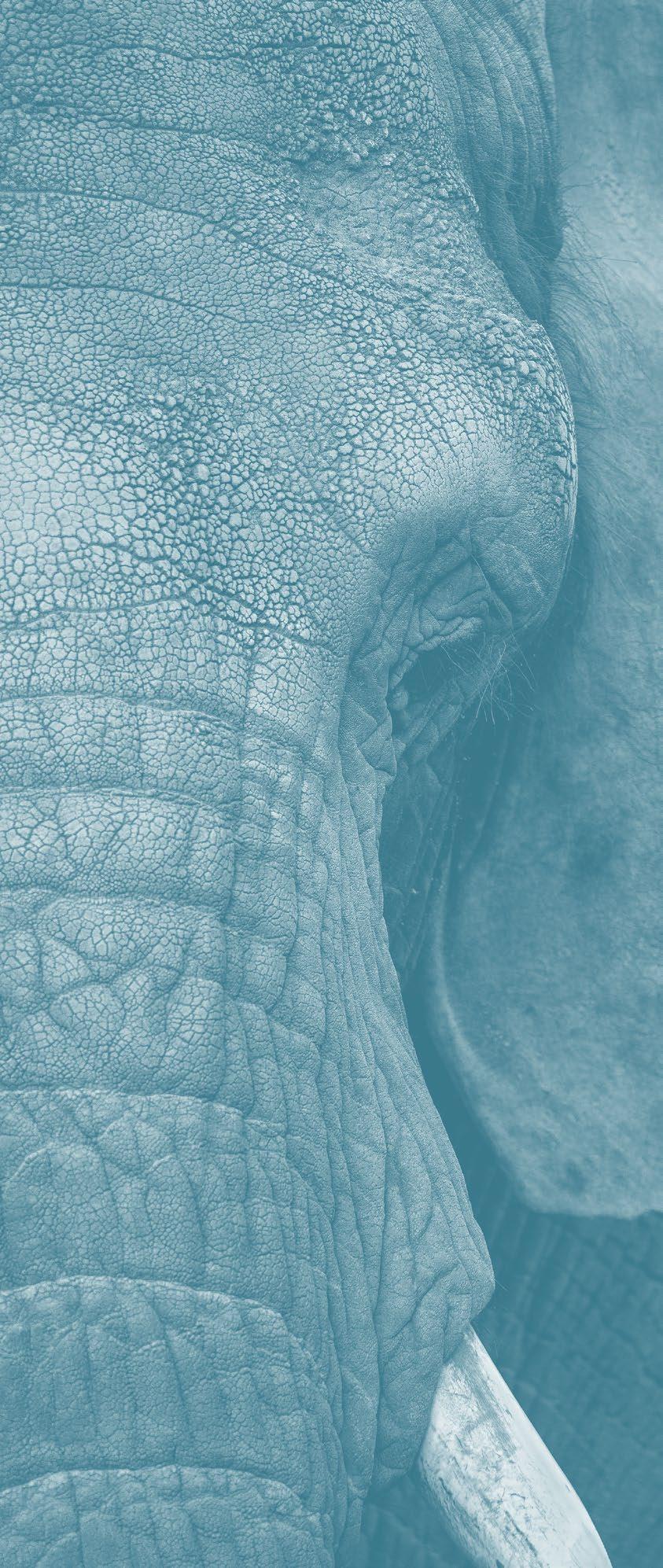

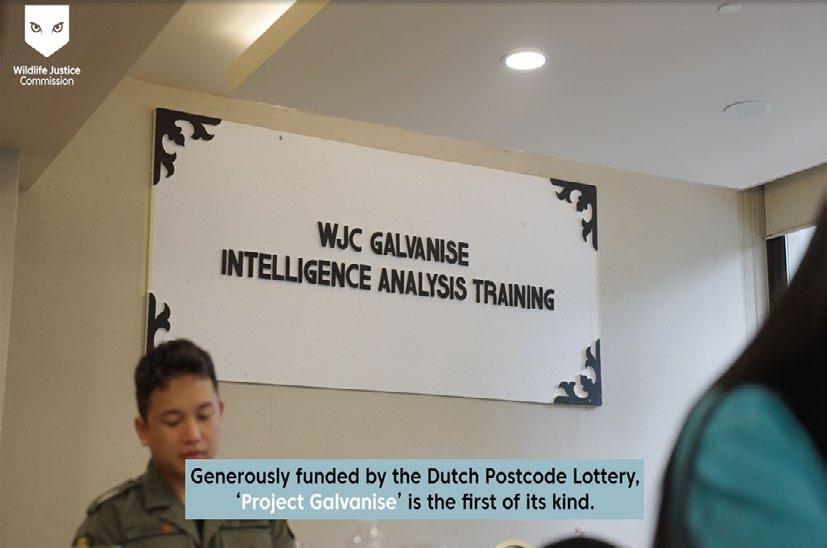

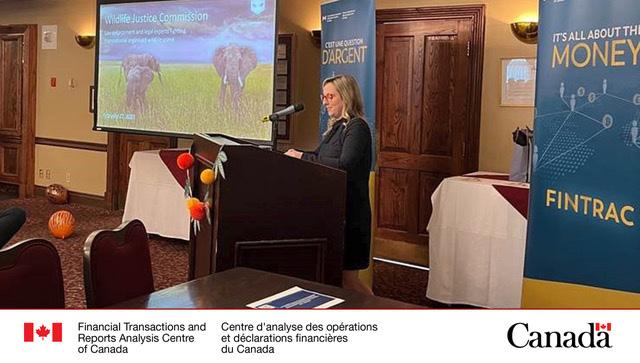





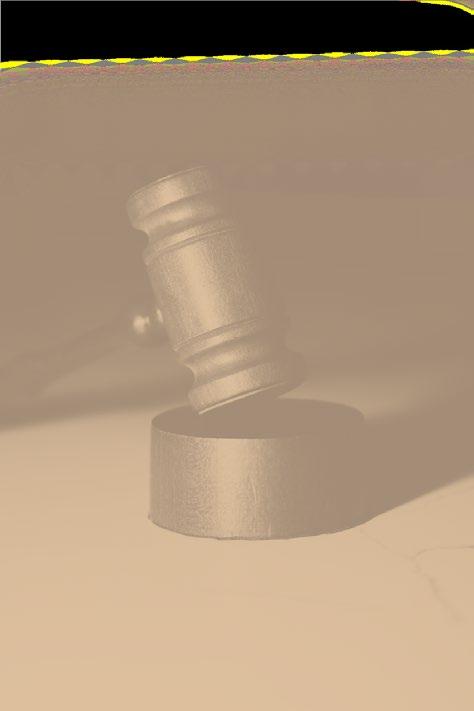


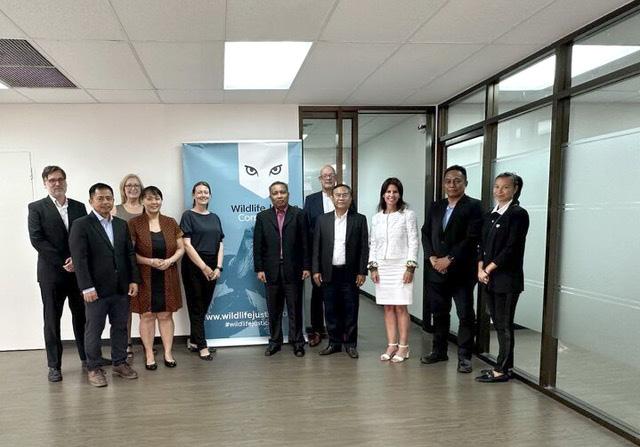
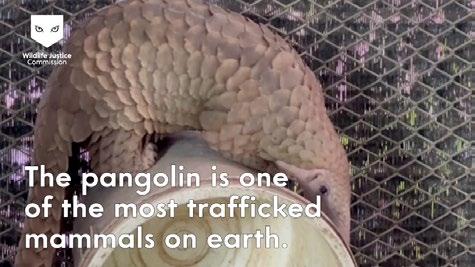

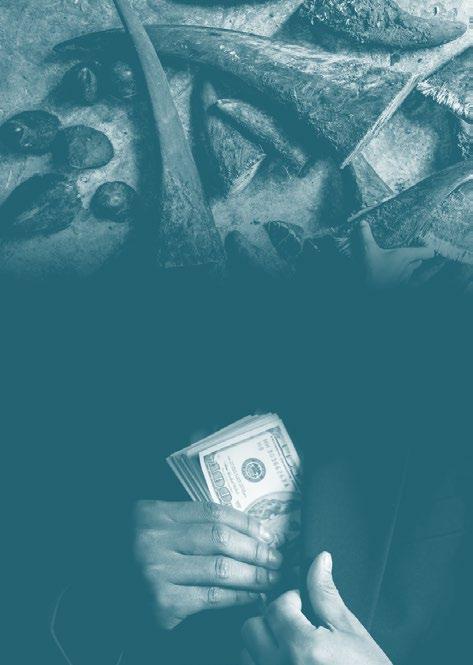

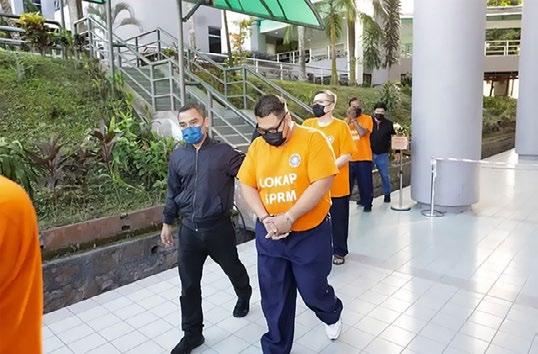
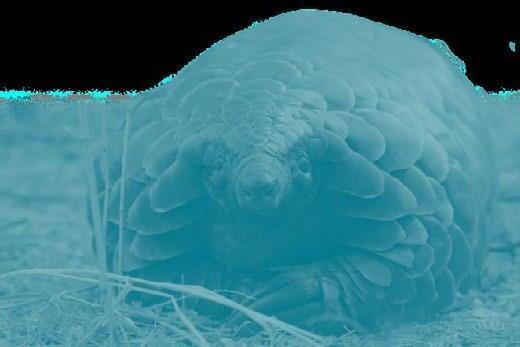
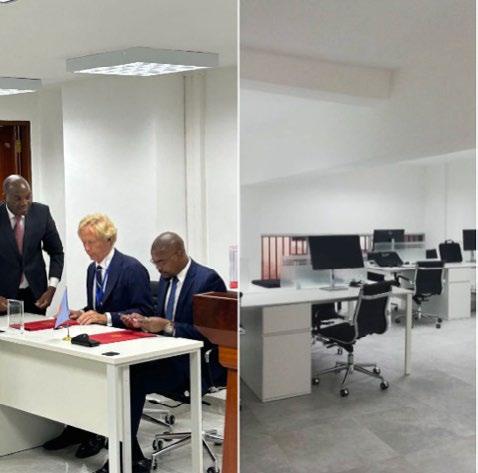

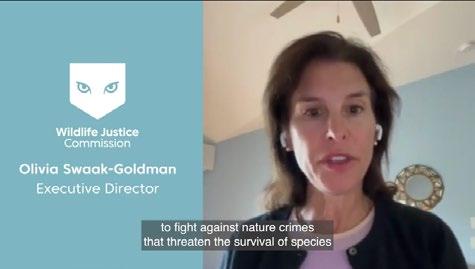
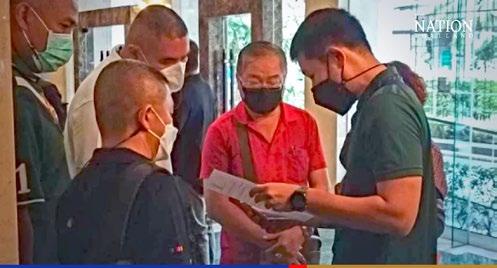
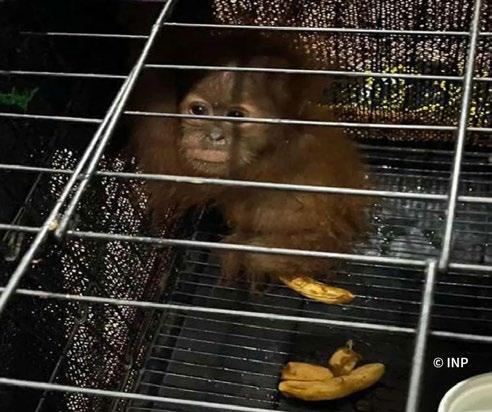
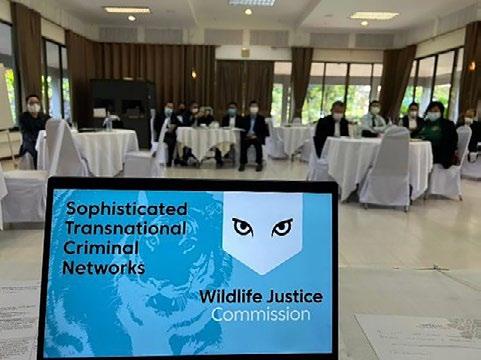

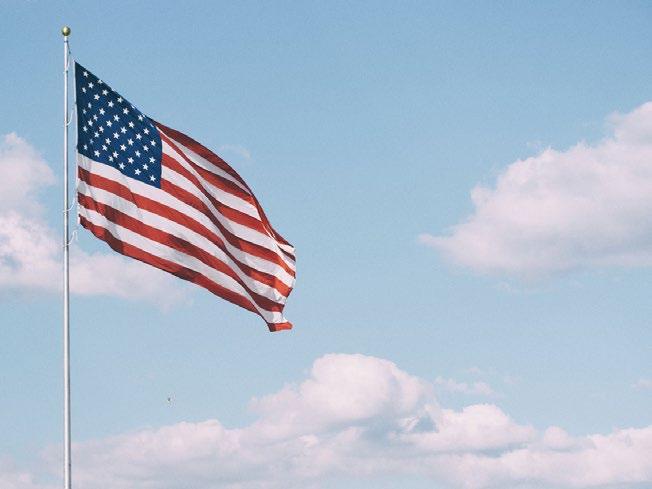
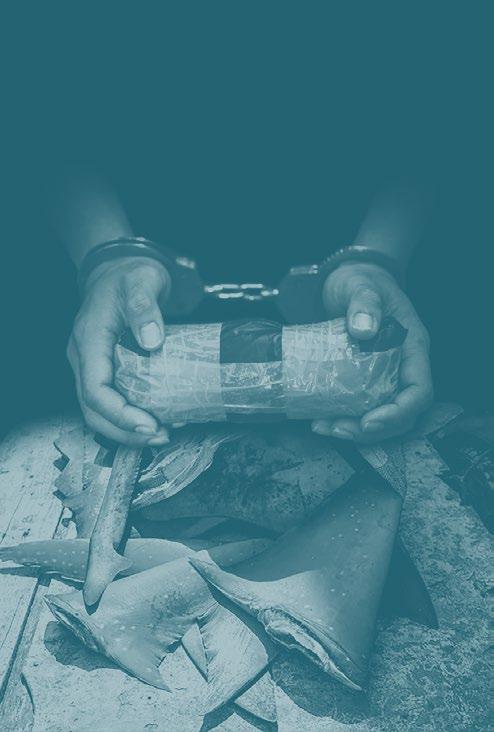
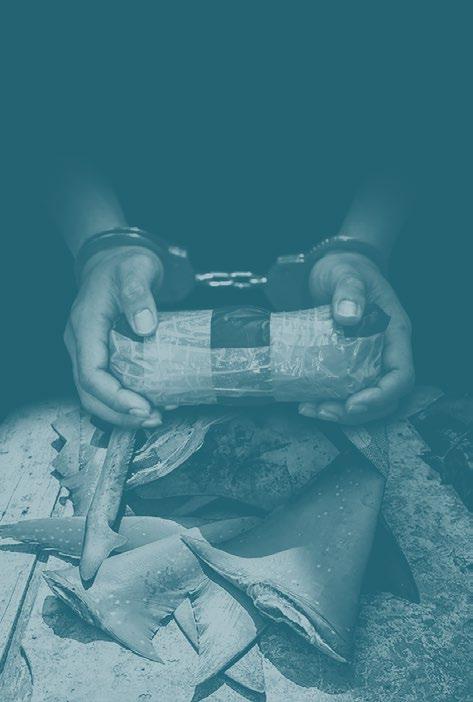

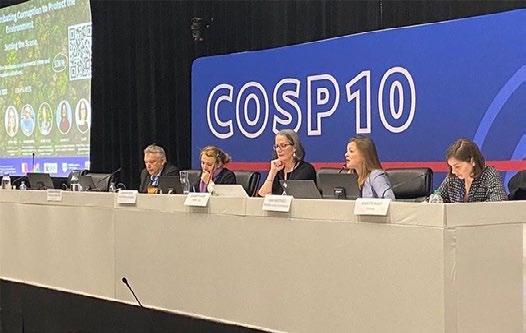


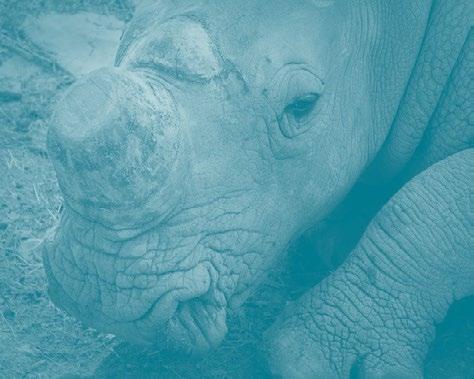
In 2023, the Wildlife Justice Commission managed to achieve outstanding results. We increased our focus on information collection and analysis and were able to develop an unparalleled intelligence picture of the global trafficking situation, putting the organisation in a strong position to support the efforts of law enforcement partners with relevant and current intelligence and investigations. In 2023, we assisted in the arrests of 26 suspects in six countries (Thailand, Vietnam, South Africa, Nigeria, Malaysia, and Indonesia), thereby disrupting the criminal
capabilities of at least 10 trafficking networks. Further, the trials of 12 suspects were concluded, resulting in convictions in Nigeria, South Africa, and the US. Along with these arrests, 1.8 tonnes of pangolin scales, 1,400 turtles and tortoises, two infant orangutans, one chimpanzee, 21 tiger and other big cat skins, and various other big cat parts (bones, heads, tails, etc.) were seized.
The following is an overview of the major cases that we can publicly report on.

In July, we conducted a joint operation with the Malaysian Anti-Corruption Commission, along with the support of the United States Fish and Wildlife Service in Thailand, which resulted in the arrest of 12 suspects, including two customs officers and a high-level suspect, and the seizure of 1.8 tonnes of pangolin scales and luxury vehicles with an estimated value of over USD 5 million. This operation targeted an international pangolin scale trafficking syndicate that is believed to have bribed customs officers and freight forwarders to allow them to take seized wildlife contraband meant for disposal from a customs warehouse, fake its destruction, and sell it to buyers. This syndicate is also believed to be involved in money laundering. We acknowledge the
Malaysian Anti-Corruption Commission’s dedication to rooting out corruption and its quick response to time-sensitive intelligence.

In September, in a joint intelligence-led operation with the Wildlife Justice Commission, the Nigeria Customs Service arrested Felix Maiva, a major transport facilitator, in connection with the January 2021 seizure of more than 10 tonnes of illegal wildlife products from Apapa Port, Nigeria, which was bound for Haiphong, Vietnam. We believe this to be one of the most impactful arrests to date, as Mr Maiva is suspected to have been the principal transport facilitator assisting with the movement of large-scale wildlife shipments (for over 10 years) for Vietnamese and Chinese criminal networks operating in Nigeria.
Beyond arrests, we support our law enforcement partners in preparing for the prosecution of the individuals arrested. In July, three high-ranking Vietnamese members of an organised crime group involved in the trafficking of ivory, pangolin scales, rhino horn, and lion bones from Nigeria, Mozambique, and South Africa to Vietnam were convicted for wildlife trafficking offences. This landmark case marked the first time foreign nationals were convicted for wildlife trafficking in Nigeria. The accused had been
arrested by the Nigeria Customs Service in 2022, acting on information provided by the Wildlife Justice Commission. This success story and our achievements in disrupting wildlife trafficking in partnership with the Nigeria Customs Service were featured on the British Broadcasting Corporation (BBC).
Over the last century, the wild tiger population has decreased to alarmingly low levels. While tigers are adversely affected by climate change, habitat loss, and human-wildlife conflict, the illegal tiger trade is said to be the most imminent threat.
For the past six years, the Wildlife Justice Com -
The growth in unregulated and private breeding may be enabling illegal trade, while, at the same time, wild tigers are being targeted to service demand in Vietnam and China. The Wildlife Justice Commission’s investigations into the illegal tiger trade in 2023 led to the arrests of five traffickers.

The Wildlife Justice Commission has been investigating the illegal exotic pet trade since 2016. Our initial focus was primarily on the trafficking of orangutans from Indonesia and Malaysia and the trafficking of turtles and tortoises from Malaysia, India, and Bangladesh. The Wildlife Justice Commission’s investigations on the live pet trade in 2023 led to the arrests of five traffickers involved in the supply of live animals. The trafficking of endangered wildlife for the pet trade is a multi-milliondollar criminal industry that continues to grow in scale, driven by increasing global demand for rare species.
The Wildlife Justice Commission’s investigations on the live pet trade in 2023 led to the arrests of five traffickers involved in the supply of live animals.
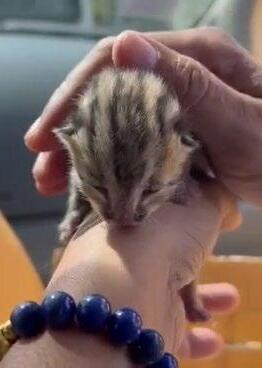
The Wildlife Justice Commission aims to keep law enforcement and policymakers informed through the publication of reports offering comprehensive insights into our investigative findings and intelligence analysis.
Two public reports were published in 2023 outlining some of the latest trends and developments in the illegal wildlife trade. In July, we highlighted corruption as the single biggest obstacle to effective law enforcement against wildlife crime in our report, entitled “Dirty Money: The Role of Corruption in Enabling Wildlife Crime” The report presents a collection of case studies to illustrate how corruption facilitates the movement of wildlife shipments through all stages of the supply chain from source to market, and how it obstructs the criminal justice response, allowing criminal networks to operate with impunity. The report also highlights the harm caused by corruption and urges strong coordinated action to counter it. We presented our recommendations stemming from this report to key audiences, including United for Wildlife and, the FACT Coalition Environmental Working Group memberships, as well as in a variety of fora, such as the IACA Summer Academy, and the 10th Session of the Conference of the State Parties to the United Nations Convention against Corruption (UNCAC).
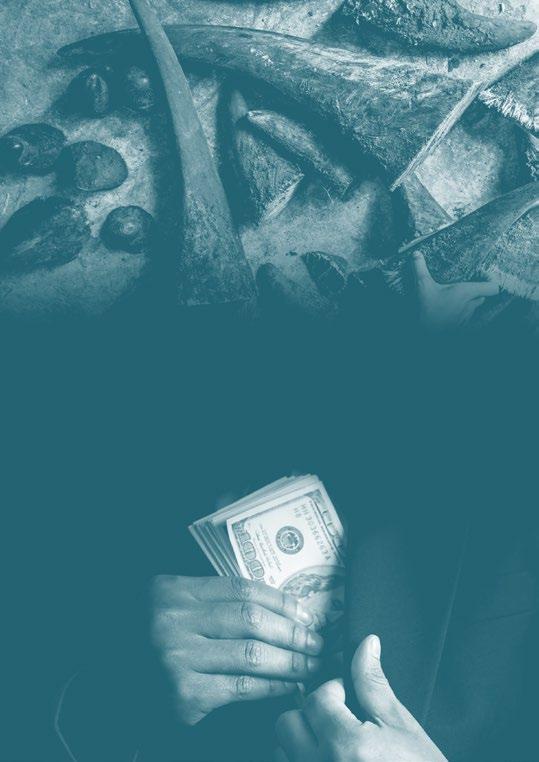
July 2023

In October, we published a new report on the convergence of wildlife crime with other forms of organised crime, building on our first crime convergence report, published in 2021, which analysed a set of 12 case studies, and illustrated the varied ways that wildlife crime can overlap or intersect with other serious and organised crimes. This new report, ”Convergence of wildlife crime with other forms of organised crime: A 2023 Review”, revisits the issue, building on the Wildlife Justice Commission’s previous work on wildlife crime convergence by presenting additional analysis and insights from three indepth case studies, based on open-source research and intelligence collected during our investigations. The report was shared with policy stakeholders, promoted and distributed on our website and on our social media channels and was included in presentations for the Nature Crime Alliance, members of the illegal wildlife trade public private partnership Project Anton at an event hosted by FINTRAC and the 10th Session of the Conference of the State Parties to the UNCAC.
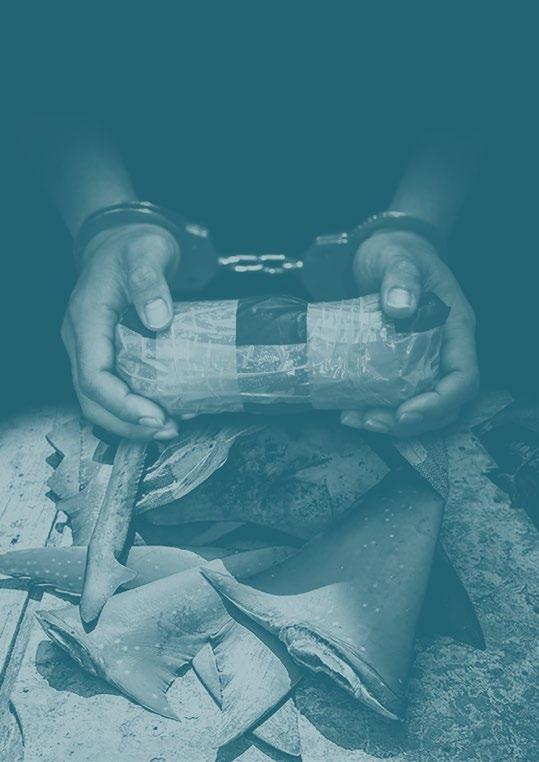
In November, the Wildlife Justice Commission unveiled “Wildlife Kingpin: Operation Dragon,” the second instalment of our riveting Wildlife Kingpin podcast series, delving deep into the real-life investigations of wildlife crime’s clandestine world.
Operation Dragon sheds light on the investigation conducted by the Wildlife Justice Commission that brought to justice some of the biggest turtle and tortoise traffickers in Southeast Asia.

Witness the Wildlife Justice Commission’s comprehensive investigations and operations unfold through our dedicated Vimeo channel.

Throughout 2023, the Wildlife Justice Commission continued sharing its expertise with law enforcement, policy makers, and practitioners worldwide.

The Wildlife Justice Commission at a side-event during the 32nd Session of the Commission on Crime Prevention and Criminal Justice (CCPCJ).
Our policy work focused on elevating the attention and prioritisation of wildlife crime in the international political agenda through interventions at high-level international fora and contributions to policymaking documents. At the 32nd Session of the Commission on Crime Prevention and Criminal Justice (CCPCJ), we promoted the use of special investigative techniques and joint investigations to address environmental crimes. We were also present at the 10 th Session of the Conference of State Parties to the United Nations Convention against Corruption (UNCAC), and we participated both as the Wildlife Justice Commission and in our role as the Chair of the UNCAC Coalition’s Working Group on Environmental Crime and Corruption . At these fora, we advocated for stronger anti-corruption measures, focusing on transparency, good governance, cooperation, protection, and effective enforcement.
The Wildlife Justice Commission also provided tailored training courses to law enforcement agencies, aiming to promote the use of intelligence and advanced investigative techniques in wildlife crime investigations. We supported the refurbishment of the Control Centre of the Serviço Nacional de Investigação Criminal (SERNIC) in Mozambique, enabling intelligence analysts to provide enhanced support for operations. Under the Galvanise Project, funded by the Nationale Postcode Lotterij, we continued training intelligence analysts to support the fight against wildlife crime in Lao PDR, Malaysia, Thailand, and Vietnam
Investigative and intelligence support was provided to 25 law enforcement agencies across the globe, including the Nigerian Customs Services, SERNIC (Mozambique), South African Police Service, South African National Parks, South Africa Department of Environment, Zambia Police Force, Royal Thai Police, Thailand Department of Special Investigations, Indonesian National Police, Malaysian AntiCorruption Commission, Sri Lankan Customs, Indian Directorate of Revenue Intelligence, Indian Wildlife Crime Control Bureau, United States Fish and Wildlife Services, China Customs Anti-Smuggling Bureau, Hong Kong Customs, Vietnam Environmental Crime Police, Guardia Civil in Spain, Portuguese Police, Peruvian National Police (DIVIAC), Panamanian National Police (Policía Nacional de Panamá), Bolivian National Police, Ecuadorian National Police, Fijian law enforcement authorities, and International Criminal Police Organization (INTERPOL).
Investigative and intelligence support was provided to 25 law enforcement agencies across the globe, including the Nigerian Customs Services, SERNIC (Mozambique), South African Police Service, South African National Parks, South Africa Department of Environment, Zambia Police Force, Royal
Thai Police, Thailand Department of Special Investigations, Indonesian National Police, Malaysian AntiCorruption Commission, Sri Lankan Customs, Indian Directorate of Revenue Intelligence, Indian Wildlife Crime Control Bureau, United States Fish and Wildlife Services, China Customs Anti-Smuggling Bureau, Hong Kong Customs, Vietnam Environmental Crime
In 2023, our work was featured in two podcasts:
Police, Guardia Civil in Spain, Portuguese Police, Peruvian National Police (DIVIAC), Panamanian National Police (Policía Nacional de Panamá), Bolivian National Police, Ecuadorian National Police, Fijian law enforcement authorities, and International Criminal Police Organization (INTERPOL).
August, 2023. In this episode, Olivia Swaak-Goldman, Executive Director of the Wildlife Justice Commission, is one of three guests speaking with the Promise Institute’s Kate Mackintosh to consider the difference an international crime of ecocide would make to the practice of bauxite mining in Jamaica; deforestation in the Brazilian Amazon, and global wildlife crime.
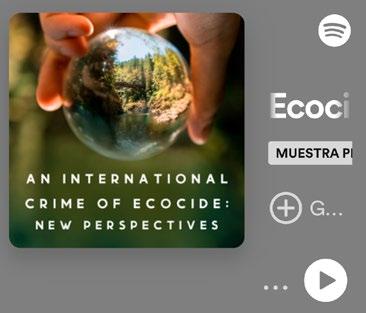
Bribe, Swindle or Steal: Wildlife Crime
March, 2023. Olivia Swaak-Goldman, Executive Director of the Wildlife Justice Commission, joins the TRACE International podcast to discuss the impact of corruption and the role of organised crime in the illicit trade in wildlife.

In 2023, we reached a new milestone by broadening our global footprint and establishing a presence in the United States and in Thailand. This expansion marks a pivotal juncture for the Wildlife Justice
Commission as we embark on a new chapter to further our mission of disrupting and helping to dismantle the transnational criminal networks trading in wildlife, timber, and fish.
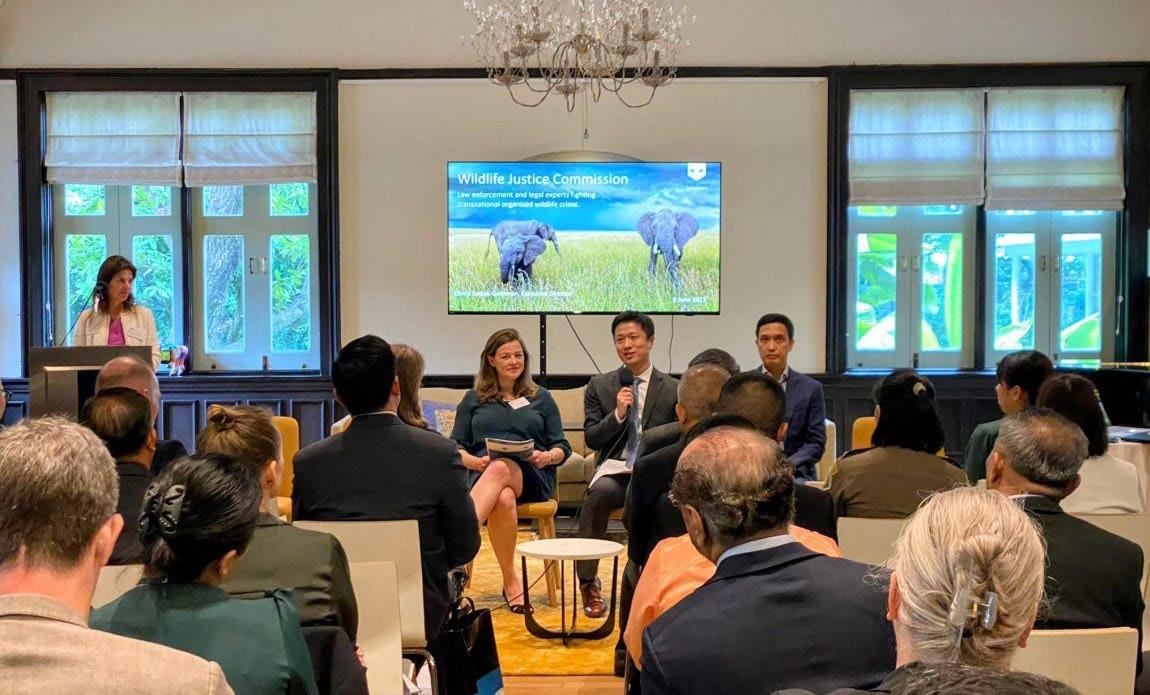
The launch event at the Residence of the Ambassador of the Kingdom of the Netherlands to Thailand in Bangkok.
In April 2021, the Wildlife Justice Commission commenced a three-year project generously funded by the Nationale Postcode Lotterij to expand our inhouse Intelligence Development Unit into a global Intelligence Development Unit to combat and prevent wildlife crime. As the first of its kind, this global Intelligence Development Unit is meant to support multinational efforts to fight wildlife crime in real time and seeks to drive the use of intelligence in Southeast Asia. This initiative, called Project Galvanise, is designed to strategically support law enforcement agencies, non-governmental organisations, and other stakeholders that hold important portfolios for safeguarding protected landscapes and wildlife in Southeast Asia.
Through Project Galvanise, the Wildlife Justice Commission supports these key partners by building their capacity to conduct intelligence analysis. The continuously up-to-date intelligence generated by the Wildlife Justice Commission can influence policy makers to enhance efforts to protect wildlife. The three key objectives for this project are as follows:
To strengthen landscape-level intelligence analysis to protect areas of crucial conservation concern in Southeast Asia;
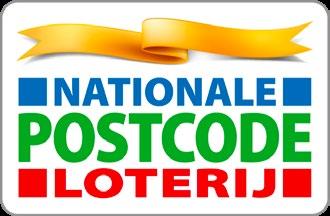
To enable law enforcement authorities to confidently focus investigative efforts, based on an intelligence-led perspective along the supply chain;
To have key stakeholders recognise the Wildlife Justice Commission as a trustworthy source of wildlife crime data, analysis, and insights.
Project Galvanise brings together a multi-country team (Lao PDR, Malaysia, Thailand, and Vietnam) of project-supported intelligence analysts. Trainings are very collaborative and inhibitors of information sharing and local nuances of the judicial system in participating countries are continuously discussed and addressed, where possible, to further enhance collaboration.
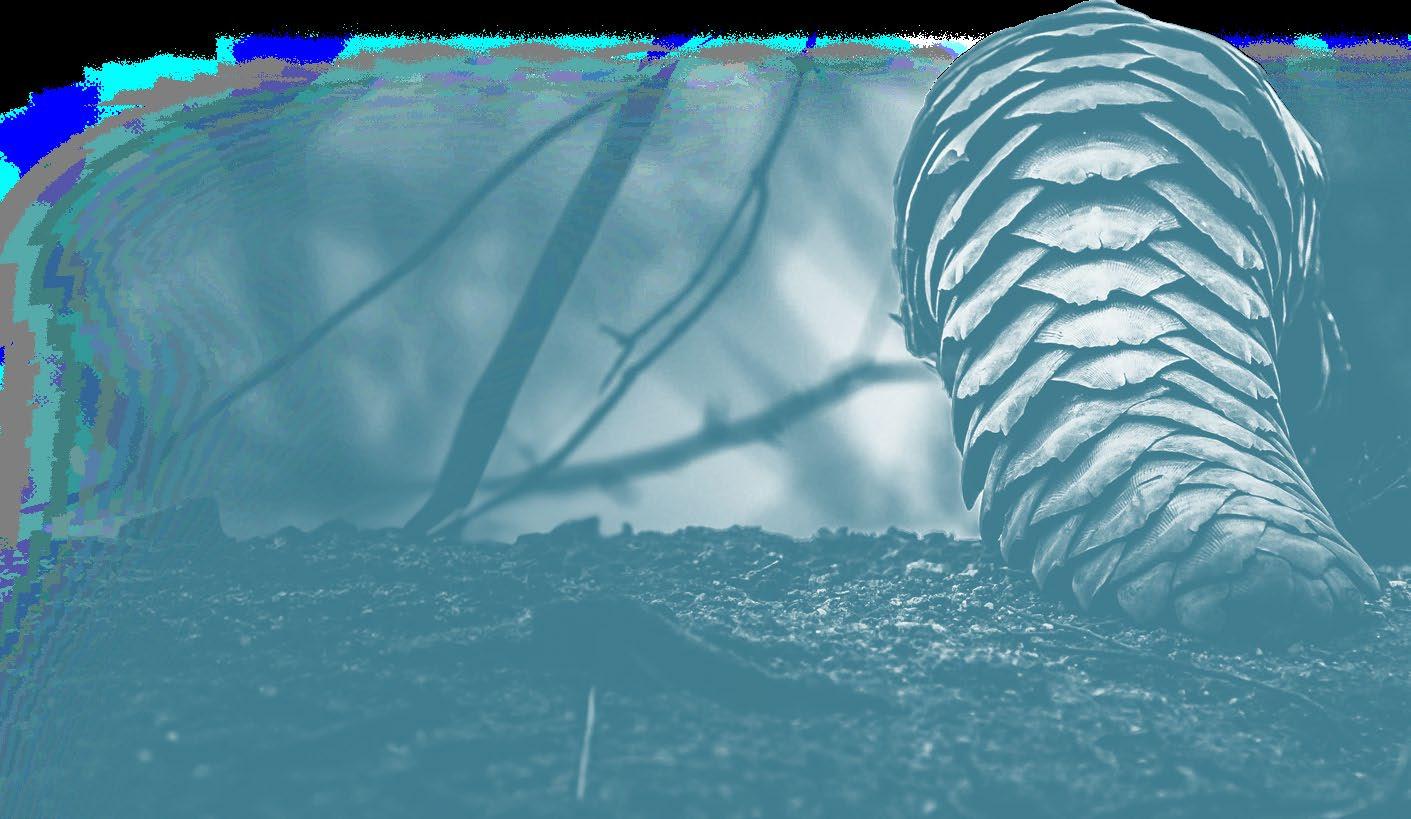

At the multilateral level, we capitalised on the opportunities provided in this area and were present at the fora outlined below, where we organised and spoke at high level events, made oral statements to plenaries of State Parties, and submitted written interventions highlighting our policy priorities.
Our policy priorities consist of the following “cross cutting issues” that compound wildlife crime and must also be addressed at the multilateral level to effectively fight wildlife trafficking: the lack of use of advanced investigative techniques in wildlife crime cases; tackling corruption facilitating wildlife crimes, related money laundering, and financial crimes; and the convergence of wildlife crime with other serious crimes. Additionally, in 2023, the Wildlife Justice Commission continued to stress the need to recognise and treat transnational organised wildlife crime as serious organised crime that should be punishable with penalties of at least four years of imprisonment. The platforms that the Wildlife Justice Commission targeted were those where international policy makers meet to determine policy priorities and make decisions on matters concerning transnational organised crime, conservation, and corruption. The Wildlife Justice Commission participated in:
The Convention on International Trade in Endangered Species of Wild Fauna and Flora (CITES) Big Cats Task Force;
The 32nd Session of the CCPCJ, which is the United Nations’ principal policy advisory body on crime prevention and criminal justice;
CITES’ Working Group on Implementation and Enforcement in Central and West Africa (online);
The meeting of the Economic and Environmental Committee of the Organization for Security and Cooperation in Europe (online);
The Council of Europe’s Committee of experts on the protection of the environment through Criminal Law Second meeting on the negotiations of a new Convention on the Protection of the Environment through Criminal Law;
The 77th CITES Standing Committee, which is the main policy advisory body to CITES’ Conference of State Parties; and
The 10 th Session of the Conference of State Parties to the UNCAC.
The Wildlife Justice Commission partnered and met with government representatives and other key stakeholders that are well positioned to undertake efforts to effectively tackle wildlife crime. This includes alliances and coalitions of which we are proud to be members and with which we work to achieve common policy objectives, such as the Global Initiative to End Wildlife Crime, UNCAC Coalition’s Working Group on Environmental Crime and Corruption, Nature Crime Alliance, FACT Coalition, and the Alliance of NGOs on Crime Prevention and Criminal Justice. For example, at the 10 th UNCAC Conference of State Parties, in our role as Chair of the UNCAC Coalition’s Working Group on Environmental Crime and Corruption, we took a leading role in coordinating civil society organisations’ advocacy, with the aim of raising awareness and building political will with State Parties to prioritise
preventing and combating corruption facilitating wildlife and other environmental crimes. The Working Group on Environmental Crime and Corruption consists of over 200 civil society organisations and, in the lead up to the 10 th Session of the Conference of the State Parties to the UNCAC, initiated an open letter addressed to UNCAC’s State Parties calling for strong policy action on environmental crime and corruption, which was signed by 301 civil society organisations and experts from 99 countries. During the 10th Session of the Conference of the State Parties to the UNCAC, the Wildlife Justice Commission also co-organised a “mega event” on corruption impacting the environment, together with a number of UNCAC States Parties, civil society organisations, United Nations Office on Drugs and Crime (UNODC), and other inter-governmental organisations.
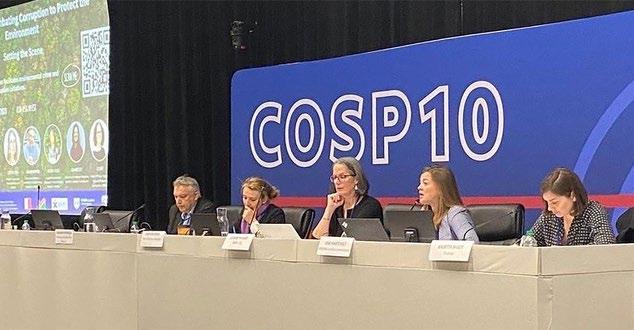
In 2023, the Wildlife Justice Commission continued to have an effective impact via its media outreach strategy and was a central point of reference on wildlife crime. The Wildlife Justice Commission was mentioned 99 times in international media (as compared to 114 times in 2022 and 62 times in 2021).
Court Jails Two Men For Unlawful Possession Of Elephant Tusks, Pangolin Scales 1
DAILY TRUST

2

DAILY MAVERICK
Rhino horn trafficking case sheds light on curious criminal network involving frozen seafood, ‘mishandled baggage’
3

THE STAR
Two Customs men among 11 arrested for illegal wildlife trafficking
Wildlife Trafficking: Court Jails Three Vietnamese, One Guinean 4
CHANNELS TV

Links to articles and features are available at:
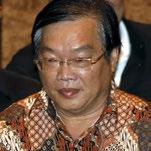
CNN WORLD ‘Godfather’ of illicit wildlife trade jailed in US for trafficking rhino horns worth $2 million
OCCRP Nigeria Arrests Wildlife-Smuggling Kingpin 6
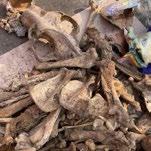
Wildlife trafficking, organised crime linked: Nonprofit’s report sheds new light 7
DOWN TO EARTH
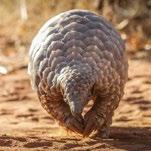
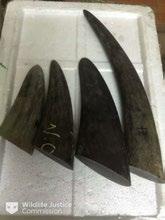
How do you get 50 stolen rhino horns out of SA? Coffee or corruption, say experts, or maybe as mugs 8

NEWS 24
ARISE NEWS
Nigeria Burns Large Stockpile of Seized Wildlife Products
In August 2023, the BBC published a special report highlighting the work of the Wildlife Justice Commission in Nigeria and the successes it has achieved in disrupting the trafficking of wildlife from the
country, in partnership with the Nigeria Customs Service. The BBC report tells the story of how topof-the-pyramid traffickers from Asia were outwitted by investigators from the Wildlife Justice Commission in Nigeria. This success story, published on BBC Sounds, on the BBC website and on YouTube garnered widespread acclaim both in traditional media outlets and on social media platforms, reaching an extensive audience.
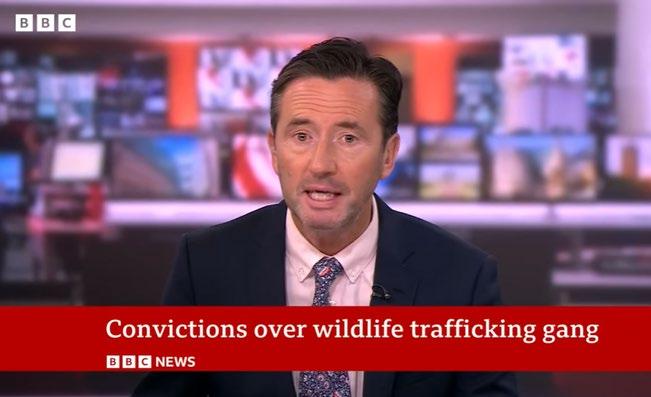
During 2023 the Wildlife Justice Commission gained 2,384 new followers, accounting for a total follower base of 16,796 in December 2023, a 17% increase from 2022.
By the end of December 2023, the Wildlife Justice Commission had the following number of followers on the social media listed below:
1,410 followers, a 13% increase from 2022.
8,097 followers, a 27% increase from 2022.
LinkedIn has been our fastest growing platform in 2022 and also provided good opportunities for recruitment.
5,320 followers, a 4% increase from 2022.
1,969 followers, a 15% increase from 2022.
Scan the QR codes to follow us on social media
The Wildlife Justice Commission is proud of what we achieved in 2023, but none of it would have been possible without our generous donors and partners. We are standing up against a multi-billion dollar illicit industry; to take on this immense challenge, we rely on the contributions of lotteries, foundations, government institutions, non-profit organisations and individuals. United by the drive to protect our planet’s vulnerable wildlife, the Wildlife
Justice Commission is extremely grateful for our donor’s continued support and flexibility.
In 2023, we were proud to include the United Kingdom’s Government, through the Illegal Wildlife Trade Challenge Fund, the Swedish Postcode Foundation, the Timeless Foundation, the Turing Foundation, the Robert H.N. Ho Family Foundation Global, and Stichting Nieuwe Waarde in our support base.
Dr. Chris Thouless, QGM Director, Elephant Crisis Fund
“The Wildlife Justice Commission’s efforts in combating wildlife trafficking from Nigeria to Vietnam underscore the critical role of intelligence-led investigations and international collaboration in fighting transnational organised wildlife crime. By leveraging resources from organisations like the Elephant Crisis Fund and partnering with local law enforcement, such as the Nigeria Customs Service, they successfully targeted highlevel individuals within the trafficking networks, brought them to justice, and disrupted their criminal operations”.
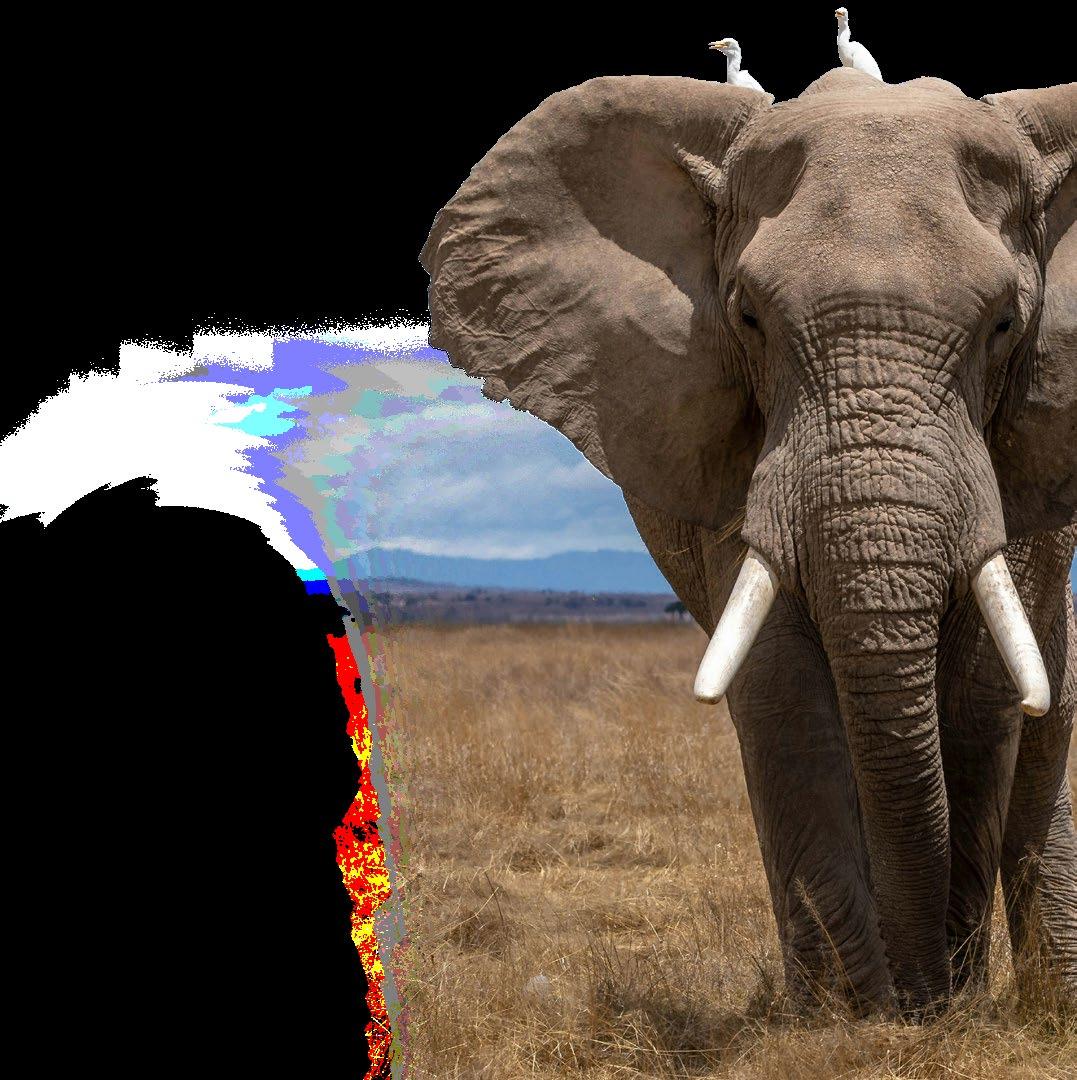












We also extend our appreciation to the generous donors who wish to remain anonymous.



In-kind supporters







The Wildlife Justice Commission is privileged and proud to have an extremely diverse and equitable team, made up of highly skilled professionals with different cultural backgrounds. The Wildlife Justice Commission personnel come from 19 different countries. We have women in positions where men are traditionally more represented, such as in our management team and our investigative team. Within the Intelligence Development Unit, the largest intelligence unit of a non-profit organisation focused on wildlife crime, all but one of the criminal analysts are women.
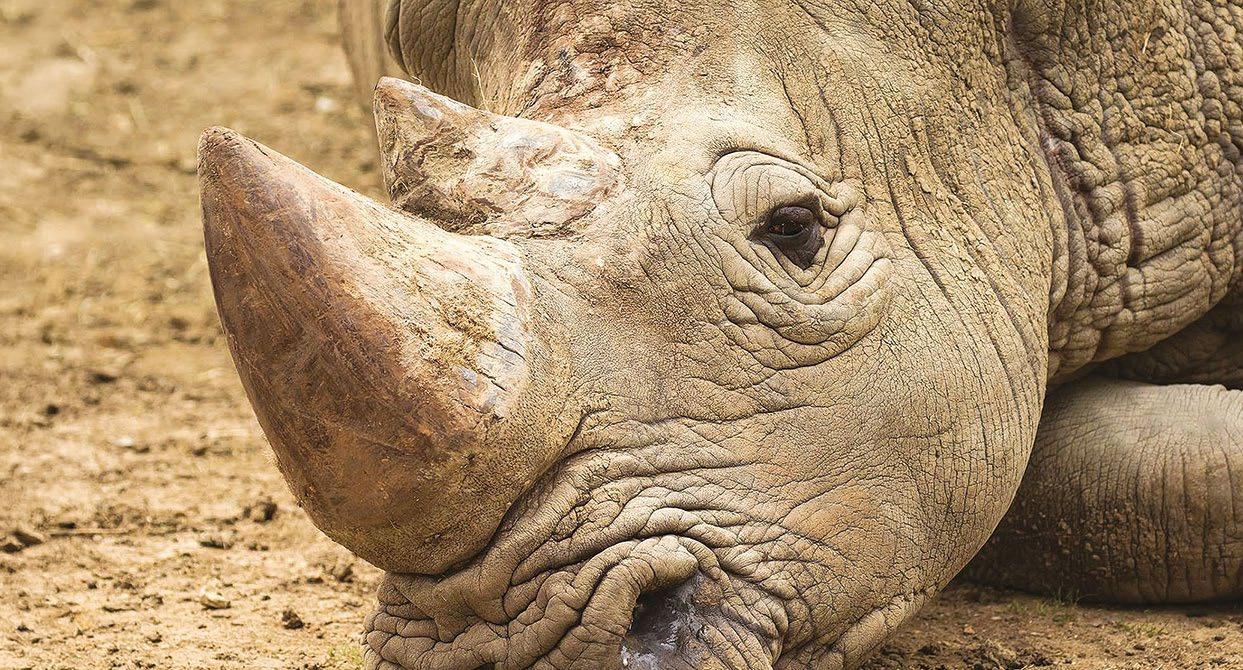
Accountants
To the Executive Board and Supervisory Board of Stichting Wildlife Justice Commission, The Hague

Beuk Accountants en Belastingadviseurs B.V. Stationsweg 103 1981 BB Velsen-Zuid
Postbus 419 1970 AK IJmuiden
T: 0255-534074
info@beukaccountants.nl www.beukaccountants.nl KvK: 72456809
To the Executive Board and Supervisory Board of Stichting Wildlife Justice Commission, The Hague
Our conclusion
We have reviewed the financial statements 2023 of Stichting Wildlife Justice Commission based in The Hague.
Based on our review, nothing has come to our attention that causes us to believe that the accompanying financial statements do not give a true and fair view of the financial position of Stichting Wildlife Justice Commission as at 31 December 2023 and of its result for the year then ended in accordance with Guideline for annual reporting 650 "Fundraising organizations".
The financial statements comprise:
the balance sheet as at 31 December 2023;
the statement of income and expenditure for 2023; and
the notes comprising of a summary of the accounting policies and other explanatory information.
Basis for our conclusion
We conducted our review in accordance with Dutch law, including the Dutch Standard 2400 'Opdrachten tot het beoordelen van financiële overzichten' (engagements to review financial statements). A review of financial statements in accordance with the Dutch Standard 2400 is a limited assurance engagement. Our responsibilities under this standard are further described in the 'Our responsibilities for the review of the financial statements' section of our report.
We are independent of Stichting Wildlife Justice Commission in accordance with the Verordening inzake de onafhankelijkheid van accountants bij assurance-opdrachten (ViO, Code of Ethics for Professional Accountants, a regulation with respect to independence) and other relevant independence regulations in the Netherlands. Furthermore we have complied with the Verordening gedrags- en beroepsregels accountants (VGBA, Dutch Code of Ethics).
We believe the assurance evidence we have obtained is sufficient and appropriate to provide a basis for our conclusion.
Alle diensten worden verricht op basis van een overeenkomst van opdracht, gesloten met Beuk Accountants en Belastingadviseurs B.V., waarop van toepassing zijn de algemene voorwaarden, gedeponeerd bij de Kamer van Koophandel onder nr. 72456809. In deze voorwaarden is beperking van aansprakelijkheid opgenomen.
Accountants
of Executive Board for the financial statements
The Executive Board is responsible for the preparation and fair presentation of the financial statements in accordance with Guideline for annual reporting 650 "Fundraising organizations". Furthermore, the Executive Board is responsible for such internal control as it determines is necessary to enable the preparation of the financial statements that are free from material misstatement, whether due to fraud or error.
Our responsibilities for the review of the financial statements
Our responsibility is to plan and perform the review in a manner that allows us to obtain sufficient and appropriate assurance evidence for our conclusion.
The level of assurance obtained in a review engagement is substantially less than the level of assurance obtained in an audit conducted in accordance with the Dutch Standards on Auditing. Accordingly, we do not express an audit opinion.
We have exercised professional judgement and have maintained professional scepticism throughout the review, in accordance with Dutch Standard 2400.
Our review included among others:
- Obtaining an understanding in the entity and its environment and the applicable financial reporting framework, in order to identify areas in the financial statements where material misstatements are likely to arise due to fraud or error, designing and performing procedures to address those areas, and obtaining assurance evidence that is sufficient and appropriate to provide a basis for our conclusion;
- Obtaining an understanding of the entity's accounting systems and accounting records and consider whether these generate data that is adequate for the purpose of performing the analytical procedures;
- Making inquiries of the Executive Board and others within the entity;
- Applying analytical procedures with respect to information included in the financial statements;
- Obtaining assurance evidence that the financial statements agree with, or reconcile to, the entity's underlying accounting records;
- Evaluating the assurance evidence obtained;
- Considering the appropriateness of accounting policies used and considering whether the accounting estimates and related disclosures made by Management Board appear reasonable;
- Considering the overall presentation, structure and content of the financial statements, including the disclosures; and
- Considering whether the financial statements and the related disclosures represent the underlying transactions and events in a manner that appears to give a true and fair view.
Velsen-Zuid, August 27, 2024
Beuk Accountants en Belastingadviseurs B.V.

drs. P. van der Kolk RA
2 van 2
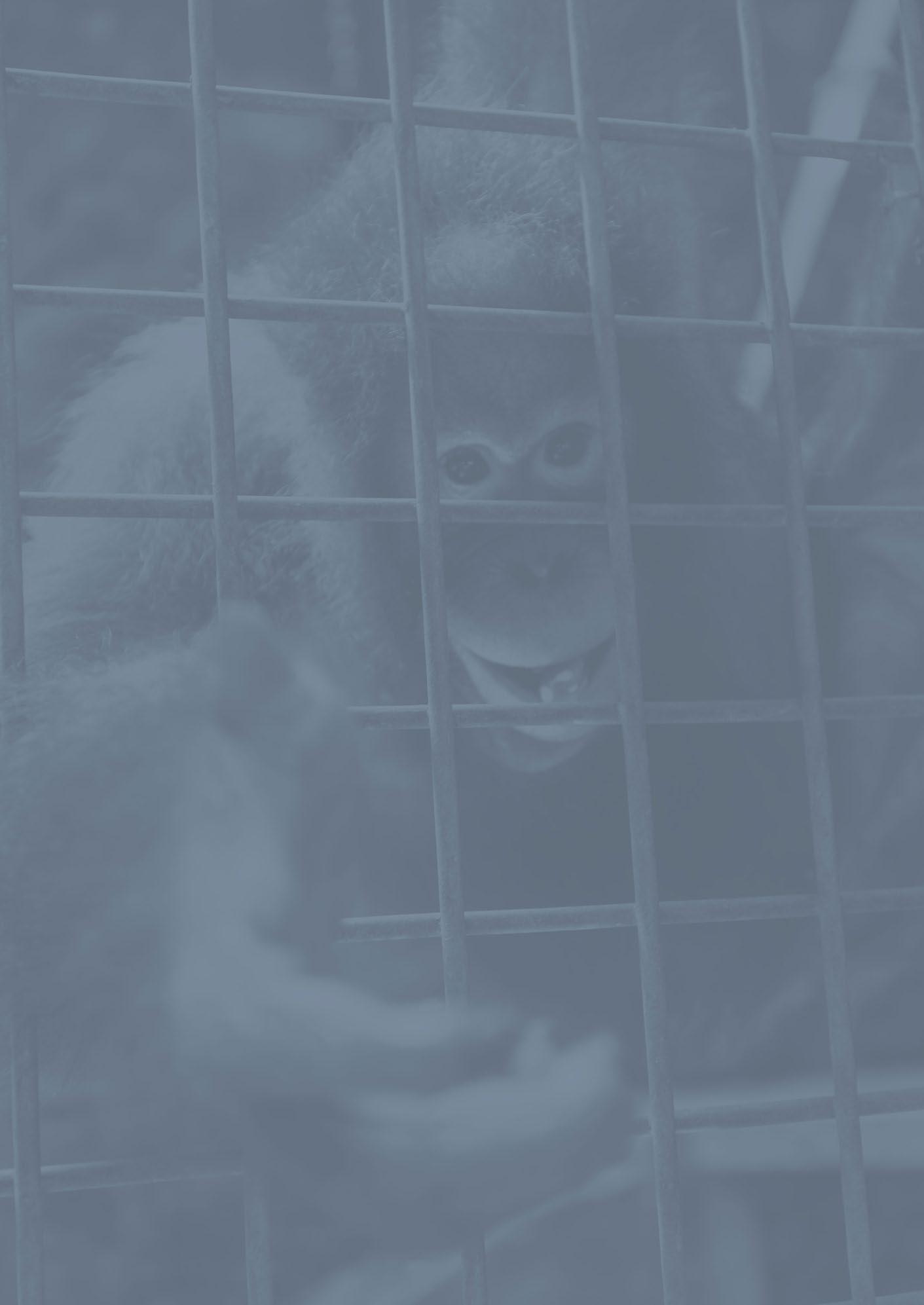
Law enforcement and legal experts fighting transnational organised wildlife crime.
www.wildlifejustice.org